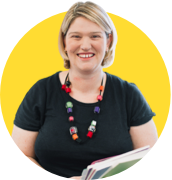
Interested in learning one of our courses?
About Telehealth Services for Therapy & Assessments
Our Telehealth services are provided via Zoom. There are many benefits of Telehealth and remote speech therapy to the student and family which include a reduction in travel time, and the improved flexibility with the family’s teaching schedule.
Sessions have the ability to be conducted with secondary students as part of their evening homework routine rather than clutter the family’s weekend schedule.
Kathryn provides weekend sessions on one Saturday each fortnight within school terms and midweek sessions can occur either weekly or fortnightly during term time.
Please get in touch to discuss the individual needs of your child.
What our Courses & Coaching Customers Say.
‘Fortnightly literacy coaching with Kathryn has been so helpful this year and I’m grateful for how easy it was to access this support online. It was a big year with lots of change from face to face to online telepractice. My caseload consists of lots of literacy in primary school. We discussed everything from assessment tools to therapy, physical resources and online tools, individual client needs and school based intervention. It was particularly helpful to listen to Kathryn’s ideas and her practices as well as hear from other professionals in the group. Kathryn was receptive to questions and very personable. She was happy to be led by our ideas but also had her own information to share. Kathryn’s professional coaching has kept me up to date with best practices.’
Jessica
Speech Pathologist, NSW
‘Kathryn offers schools the unique knowledge and skill of being a dual qualified teacher and speech pathologist. This has provided her with the opportunity to be seconded by NESA as a curriculum writer for the new K-2 & 3-6 NSW English syllabus development. This recognition highlights the regard in which the professional community hold Kathryn. If you have the opportunity to engage her services, your school staff and students will thank you for her input into their development.’
Simon
Principal K-12 Independent School, NSW
Every course I have completed with Kathryn has been presented in a clear and easily understood manner. She presents a wealth of resources, thoroughly researched and mostly used herself with various students. Any questions are answered and explained. Kathryn’s experience in many workplace settings enables her to support you no matter where you work. I highly recommend any course Kathryn presents or endorses.
Annabel
Itinerant Support Teacher (Hearing), NSW
I have found Kathryn's coaching sessions extremely valuable and relevant for my role working in a school context. Each session has always focused on the practical application of the best research and resources available. Kathryn has helped me to prioritise decisions based on my specific situation. Kathryn does not use a 'one size fits all' model but instead she personalises her coaching to make sure individual contexts are considered. Kathryn has an extraordinary breadth of knowledge and skillfully uses her expertise to advise and give ongoing support.
Renee
Learning Support Co-ordinator (Junior School), K-12 Independent School, NSW
Thank you, Kathryn, for your short course “The Literate Learner”! There were a lot of take-a-ways, but what particularly stood out to me were the strong links between language and literacy disorder and how much better each is supported when we also work on the other. Despite working as a speech pathologist for years, I’d never really seen the need (or had the confidence) to work literacy into my practice. Your course really brought literacy to my attention as a vital component of school-aged practice but also showed me how I could support my clients in learning the skills they need. It was also great to learn about some of the “go-to” trainings I could do to sharpen my skills across settings.
Amy
Speech Pathologist, NSW
I had the pleasure of working with Kathryn in her role of Head of Learning Engagement P-12. Kathryn brings a wealth of expertise and knowledge to the school context. As well as being dual qualified in education and health, Kathryn continues to practice in both disciplines and pursue the most up to date and current educational research to inform her practice. Kathryn is well connected with leaders in the field of children’s learning difficulties and utilises her vast network to source advice and input from the highest caliber of multi-disciplinary teams. Kathryn’s team approach to working with parents, health professionals and educators has become the benchmark which I aim to implement in other contexts.
Ian
Head of Early Years & Junior School, K-12 Independent School, Queensland
Commonly Asked Questions
The terminology used to describe difficulties with learning varies according to the country in which the diagnosis is made.
Dyslexia* is viewed as a reading impairment (DSM 5/ICD 10), a learning ‘difficulty’ (UK) or a specific learning disability (USA). The latest edition of the Diagnostic Statistical Manual 5th edition (DSM 5) uses the terminology Specific Learning Disorder in Reading, Writing or Mathematics. These are the conditions that have also been referred to as Dyslexia, Dysgraphia and Dyscalculia.
According to AUSPELD It is conservatively estimated that well over 20% of Australian children are currently struggling with learning difficulties and 3% to 5% of students are known to have a developmental learning disorder. Of those students identified with a learning disorder, four out of every five are assessed as having a reading disorder (or SLD with impairment in reading), commonly known as dyslexia*.
A learning disorder can co-exist with difficulties related to attention, working memory, developmental language disorder or other disabilities such as hearing impairment, autism spectrum disorders, dyspraxia or a traumatic brain injury.
Each educational sector has a different approach to providing support in schools. For students with disabilities, the Nationally Consistent Collection of Data Census occurs annually and based on this information funding is allocated. In NSW DET and Catholic Schools, the funding is shared to schools via regional office. Whereas in independent schools, it is forwarded directly to the school.
With the shift towards data and research driven practice for early years reading instruction (science of reading), high quality instruction in the classroom with effective progress monitoring and use of decodable readers, many students are achieving good success and the need for additional small group or individual intervention is reduced.
Schools can be tricky to navigate due to a wide range of competing demands on staff. The first step in accessing support would be to contact the classroom teacher or alternatively, the school principal. Kathryn has extensive experience navigating the school pathway as a speech therapist, classroom teacher and parent of students with disabilities. She is always happy to be contacted to assist with navigation of support at school for both students, families and teaching staff.
Want to Make an Enquiry?
Fill out this form and we’ll be in touch

Welcome to Language and Learning. Here you will find a wealth of information & speech and language training for teachers, school leaders & speech therapists working with students across K-12. These training courses and coaching opportunities are designed to equip you to support your staff and students to be the best they can be provided by someone who has navigated many of your challenges in school leadership roles. Kathryn can share her lessons learned to help you work smarter, not harder.
Who We Are
©2025 Language & Learning All Rights Reserved




